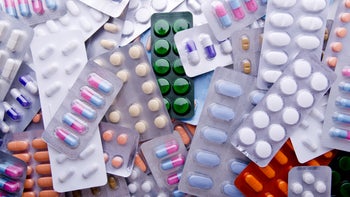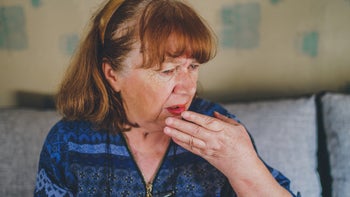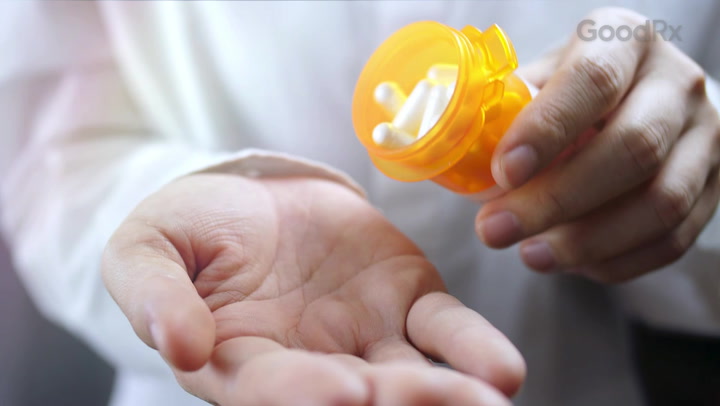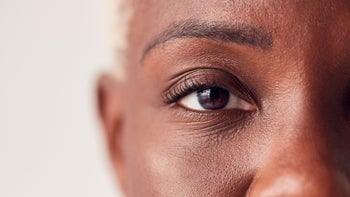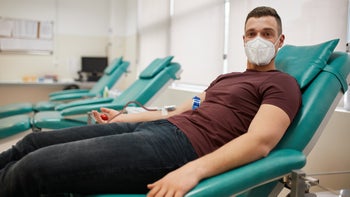
11 Medications That May Be Affecting Your Sex Life
Key takeaways:
Sexual problems are common for both men and women. There are many possible causes of sexual problems, including medication.
Several medications used to treat cancer, depression, and seizures can cause sexual problems. Heart failure, high blood pressure, and birth control medications can also play a role.
If you think you’re having sexual problems due to a medication, talk to a healthcare professional. You may be able to change your dose or stop the medication. In some cases, you may need to start a new medication to improve sexual dysfunction symptoms.
Access savings on related medications
Table of contents

Taking care of your health is worthwhile. Your sexual health is no different.
In the U.S., over 40% of women and around 50% of men report having sexual problems. To live your most meaningful life, it’s important to understand factors that may lead to these problems. But did you know there is a link between certain medications and sexual health?
In this article, we’ll cover 11 medications that can cause sexual issues and discuss what you can do about it.
Search and compare options
What is sexual dysfunction?
Sexual dysfunction is a term that describes a wide range of sexual problems. Specific difficulties are often divided by sex.
Men may experience erectile dysfunction (ED) or low testosterone. They may also have problems ejaculating, including ejaculating too early or more slowly than desired. Some sexual problems experienced by women include problems with arousal, trouble having orgasms, and pain during sex.
One type of sexual dysfunction — low sexual desire (low libido) — can happen in both men and women.
What causes sexual dysfunction?
There are many potential causes of sexual dysfunction. These can be mental and/or physical and include:
Medical conditions, such as diabetes or high blood pressure
Hormonal changes during pregnancy, after childbirth, or while breastfeeding
Sexually transmitted infections
Alcohol or substance use
Depression
Menopause
Relationship problems
Boredom with your sex life
Older age
Medications are another common cause of sexual dysfunction. Here are the most common groups of medications that may affect your sexual health.
Mental health and erectile dysfunction: Find out which antidepressants and anti-anxiety medications can contribute to ED symptoms.
Hyping up your libido: Here are some natural ways to help boost your sex drive.
Concerning symptoms? Discover when, why, and how you should get tested for sexually transmitted infections (STIs).
1. Some antidepressants
Antidepressants are a broad group of medications. They treat mental health conditions like depression and anxiety. One common group of antidepressants are selective serotonin reuptake inhibitors (SSRIs).
Of the SSRIs, paroxetine (Paxil) is most likely to cause sexual problems. Others in this group, such as fluvoxamine (Luvox), sertraline (Zoloft), and fluoxetine (Prozac), may also be more likely to cause issues. One of the most common sexual side effects from SSRIs is delayed ejaculation.
Sexual dysfunction is less likely with other antidepressants, including mirtazapine (Remeron) and bupropion (Wellbutrin SR, Wellbutrin XL). These may be better options for people who experience sexual problems while taking antidepressants.
2. Heart failure medications
Many people with heart failure report having sexual problems. About 10% of them say that their medications are a root cause. Reported issues include ED and decreased libido.
Heart failure medications that can cause sexual problems include:
Digoxin (Lanoxin)
Spironolactone (Aldactone)
Some beta blockers
Thiazide diuretics, such as hydrochlorothiazide (Microzide)
3. Blood pressure medications
Many high blood pressure medications can cause sexual side effects, such as low desire for sex, ED, and delayed orgasm. Some examples include clonidine (Catapres, Catapres-TTS) and methyldopa.
Some heart failure medications can also treat high blood pressure. These include beta blockers, spironolactone, and thiazide diuretics. As mentioned above, these can all cause sexual problems. In addition to sexual issues, spironolactone may also lead to gynecomastia — enlarged breasts in men.
4. H2 blockers
Histamine-2 antagonists (H2 blockers) are common over-the-counter medications for heartburn and gastroesophageal reflux disease (GERD). Common H2 blockers include cimetidine (Tagamet HB) and famotidine (Pepcid AC).
H2 blockers are sometimes associated with sexual problems — especially in men. They can cause low desire for sex and difficulty getting an erection.
5. Certain cancer treatments
Chemotherapy medications kill cancer cells. But they may also affect other cells in the body. Sometimes the affected cells are responsible for sexual function.
Chemotherapy medications have the potential to cause sexual problems in men and women. Other cancer treatments, such as radiation and hormone therapy, can also cause sexual dysfunction.
6. Medications that affect sex hormones
Medications that affect sex hormone levels can cause sexual problems. Sex hormones include estrogen, testosterone, and progesterone. These medications can cause symptoms such as ED and decreased libido.
Examples of these medications include:
Gonadotropin releasing hormone (GnRH) agonists, such as leuprolide (Lupron Depot, Eligard)
GnRH antagonists, such as elagolix (Orlissa)
Androgen receptor inhibitors, such as bicalutamide (Casodex)
Birth control products
It’s not completely clear how birth control affects sexual function. Some research suggests that they decrease sex hormone levels, which can lead to sexual problems. But other studies suggest that some birth control pills are less likely to cause sexual problems than others. These include:
Estradiol valerate and dienogest (Natazia)
Ethinyl estradiol and levonorgestrel (Vienva, Alesse, Aviane)
Ethinyl estradiol and drospirenone (Yasmin, Ocella, Zarah)
7. Antipsychotics
Antipsychotic medications treat various mental health conditions, including schizophrenia and bipolar disorder. They may cause sexual problems by changing the levels of certain chemicals in the body, including dopamine and prolactin.
The antipsychotics that are most likely to cause sexual problems are typical (first-generation) antipsychotics, like haloperidol (Haldol). Atypical (second-generation) antipsychotics are less likely to cause sexual problems. Risperidone (Risperdal) is the exception. This medication is more likely than other atypical antipsychotics to cause sexual dysfunction.
8. Opioids
Opioids can treat short-term and chronic pain. Common opioid medications include tramadol (Qdolo, ConZip), oxycodone (OxyContin), and hydrocodone / acetaminophen.
In general, many people with chronic pain experience sexual problems. And pain medications like opioids can lower sexual desire in their own right. They may also make ED more likely.
Medications used to treat opioid use disorder can also cause sexual dysfunction. These include methadone (Methadose), buprenorphine (Suboclade), and buprenorphine / naloxone (Suboxone, Zubsolv).
9. Benzodiazepines
Benzodiazepines treat conditions such as anxiety, panic disorder, and epilepsy (seizure disorder). However, these medications may contribute to decreased libido and a lowered ability to orgasm, among other issues. It’s important to note that having anxiety can cause sexual problems too, though.
Common benzodiazepines include alprazolam (Xanax), lorazepam (Ativan), and diazepam (Valium).
10. Statins
Statins help treat high cholesterol. They may also cause sexual problems because they can potentially lower testosterone. However, the research is conflicting. Some studies suggest that statin use isn’t actually associated with sexual dysfunction.
Talk to a healthcare professional if you’re experiencing sexual problems with statins. But know that statins lower the risk of heart attack and stroke. So don’t stop taking them without talking to a healthcare professional first.
11. Antiepileptics
Antiepileptics, sometimes called anticonvulsants, treat a wide variety of health conditions. They’re commonly used to prevent seizures in people with epilepsy, and they also treat some types of nerve pain. However, antiepileptics can also cause or contribute to sexual dysfunction.
There are several anticonvulsants that may cause sexual problems. They include carbamazepine (Tegretol), valproic acid (Depakene), and phenytoin (Dilantin). Levetiracetam (Keppra) may cause less sexual side effects than other antiepileptics.
How to improve sexual dysfunction caused by medications
If you develop sexual problems, talk to a healthcare professional. They can help you figure out if it’s due to any of your medications or if there’s another cause.
If medication is the culprit, there are a few things you can do.
Your healthcare professional may recommend stopping the medication if it’s not necessary. Or they may recommend switching to another medication that’s less likely to cause issues. Always talk to your healthcare professional before stopping a medication or trying a new one.
If stopping or switching your medication isn’t an option, your healthcare professional may prescribe another medication to help address sexual side effects. For example, phosphodiesterase type 5 (PDE5) inhibitors such as sildenafil (Viagra) and tadalafil (Cialis) can treat ED in men. And some medications, such as Addyi (flibanserin) and Vyleesi (bremelanotide), can help with low sex drive in women.
Frequently asked questions
Dopamine is known as the “feel good” chemical. Taking medications that increase dopamine can lead to hypersexuality — an overactive sex drive. These include medications known as dopamine agonists (DAAs), such as ropinirole (Requip) and pramipexole (Mirapex). Although rare, the atypical antipsychotic aripiprazole (Abilify) can also cause hypersexuality.
Retrograde ejaculation happens when the semen flows into the bladder instead of out of the penis. This is somewhat common with alpha blocker medications, which treat a condition called benign prostate hyperplasia (BPH) — an enlarged prostate. Examples of alpha blockers include tamsulosin (Flomax) and silodosin (Rapaflo).
No, antibiotics do not seem to cause ED. Although they can’t be ruled out, antibiotics aren’t common culprits for causing this type of sexual dysfunction.
The bottom line
Several medications can cause sexual problems, such as a decreased desire for sex, trouble getting an erection, and/or difficulty with orgasm. Medications that may cause sexual problems include certain antidepressants, antipsychotics, and chemotherapy. Heart failure, high blood pressure, and birth control medications can also play a role.
If there’s a gap between your medication use and sexual health, talk to your healthcare professional. They may recommend stopping the medication or switching to another medication. In some cases, you may need to start a new medication to help improve sexual dysfunction.
Why trust our experts?


References
American Cancer Society. (2020). How radiation therapy can affect the sex life of females with cancer.
Atif, M., et al. (2016). The relationship between epilepsy and sexual dysfunction: A review of the literature. SpringerPlus.
Balon, R. (2009). Medications and sexual function and dysfunction. Psychiatry Online.
Birke, H., et al. (2019). Chronic pain, opioid therapy, sexual desire, and satisfaction in sexual life: A population-based survey. Pain Medicine.
Casado-Espada, N. M., et al. (2019). Hormonal contraceptives, female sexual dysfunction, and managing strategies: A review. Journal of Clinical Medicine.
Chen, L., et al. (2019). Male sexual dysfunction: A review of literature on its pathological mechanisms, potential risk factors, and herbal drug intervention. Biomedicine & Pharmacotherapy.
Davidge-Pitts, C., et al. (2022). Reproductive hormones. Endocrine Society.
de Boer, M. K., et al. (2015). The facts about sexual (dys)function in schizophrenia: An overview of clinically relevant findings. Schizophrenia Bulletin.
Deyo, R. A., et al. (2013). Prescription opioids for back pain and use of medications for erectile dysfunction. Spine.
Ferrario, C. M., et al. (2002). Sexual dysfunction in patients with hypertension: Implications for therapy. The Journal of Clinical Hypertension.
Jaarsma, T. (2017). Sexual function of patients with heart failure: Facts and numbers. ESC Heart Failure.
Jing, E., et al. (2016). Sexual dysfunction in selective serotonin reuptake inhibitors (SSRIs) and potential solutions: A narrative literature review. The Mental Health Clinician.
Kaplan, S. A. (2009). Side effects of alpha-blocker use: Retrograde ejaculation. Reviews in Urology.
Kotis, J. B., et al. (2019). Statins and erectile dysfunction. World Journal of Men’s Health.
Laumann, E. O., et al. (1999). Sexual dysfunction in the United States. JAMA.
Lee, J. M. L., et al. (2017). Oral contraception and female sexual dysfunction in reproductive women. Sexual Medicine Reviews.
Madan, R., et al. (2020). Erectile dysfunction and cancer: Current perspective. Radiation Oncology Journal.
Mazdeh, M., et al. (2020). Anticonvulsant drugs effects on sex hormone levels and sexual function in men with epilepsy. Future Neurology.
Mazzola, C. R., et al. (2012). Impact of androgen deprivation therapy on sexual function. Asian Journal of Andrology.
Mulloy, E., et al. (2023). Diagnoses and medications associated with delayed ejaculation. Sexual Medicine.
National Institute of Diabetes and Digestive and Kidney Diseases. (2018). Gonadotropin releasing hormone (GnRH) analogues. LiverTox: Clinical and Research Information on Drug-Induced Liver Injury.
Park, Y. W., et al. (2012). Antipsychotic-induced sexual dysfunction and its management. The World Journal of Men's Health.
Richard, D., et al. (2015). Statins and male sexual health: A retrospective cohort analysis. The Journal of Sexual Medicine.
Shifren, J. L., et al. (2008). Sexual problems and distress in United States women: Prevalence and correlates. Obstetrics & Gynecology.
Stratton, K. L., et al. (2023). Drugs that may cause erection problems. MedlinePlus.
Verholleman, A., et al. (2020). Naltrexone use in treating hypersexuality induced by dopamine replacement therapy: Impact of OPRM1 A/G polymorphism on its effectiveness. International Journal of Molecular Sciences.
Zamboni, L., et al. (2019). Sexual functioning and opioid maintenance treatment in women. Results from a large multicenter study. Frontiers in Behavioral Neuroscience.
Was this page helpful?
Related Articles
Browse medications
View AllResearch prescriptions and over-the-counter medications from A to Z, compare drug prices, and start saving.









